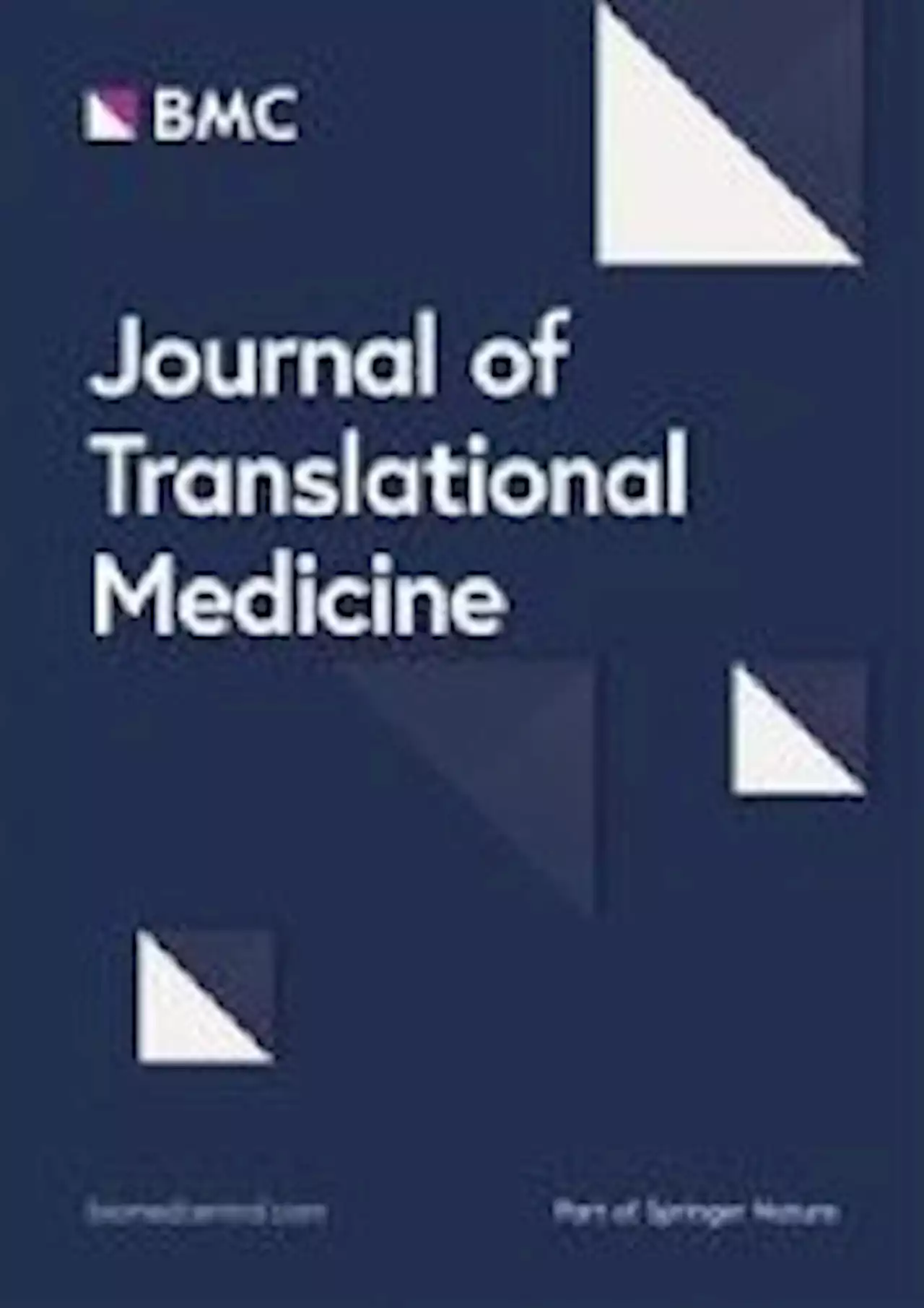If the experimental test is validated by further research it may result in people at high risk of long-COVID being given anti-viral treatments in the hope of preventing debilitating symptoms.
A blood test done while people have COVID could predict whether they're likely to develop long-term health problems, a new study suggests.long-COVIDResearchers at University College London compared levels of more than 90 blood proteins in 54 healthcare workers withThey found several proteins were dramatically disrupted for up to six weeks, even in those with mild symptoms, according to results published in the journal Lancet eBioMedicine.
Twenty of them were predictive of persistent symptoms a year later. Most were linked to anti-clotting and anti-inflammatory processes. The researchers then used an artificial intelligence algorithm to scan proteins in the blood samples - and successfully identified the 11 infected health workers who developed long-COVID.
Dr Wendy Heywood, one of the senior researchers from UCL's Great Ormond Street Institute of Child Health said:"If we can identify people who are likely to develop long-COVID, this opens the door to trialling treatments such as antivirals at this earlier, initial infection stage, to see if it can reduce the risk of later long-COVID."
United Kingdom Latest News, United Kingdom Headlines
Similar News:You can also read news stories similar to this one that we have collected from other news sources.
 Long-term neuromuscular consequences of SARS-Cov-2 and their similarities with myalgic encephalomyelitis/chronic fatigue syndrome: results of the retrospective CoLGEM study - Journal of Translational MedicineBackground Patients with long-COVID often complain of continuous fatigue, myalgia, sleep problems, cognitive dysfunction, and post-exertional malaise. No data are available on EMG recording of evoked myopotentials (M-waves) or exercise-induced alterations in long-COVID patients, providing evidence of muscle membrane fatigue. Myalgic encephalomyelitis/chronic fatigue syndrome (ME/CFS) develops in more than half of patients after an infectious disease, particularly viral diseases. A large proportion (around 70%) of these patients have neuromuscular disorders with M-wave alterations during and after exercise. Our hypothesis was that M-wave alterations would be also found in long-COVID patients, in association with neuromuscular symptoms, similar to ME/CFS. Methods This retrospective observational ColGEM (Covid LonG Encéphalomyelite Myalgique) study compared 59 patients with long-COVID and 55 ME/CFS patients with a history of severe infection who presented before the COVID pandemic. All of these patients underwent the same protocol consisting of a questionnaire focusing on neural and neuromuscular disorders and M-wave recording in the rectus femoris muscle before, during, and 10 min after a progressive cycling exercise. Maximal handgrip strength (MHGS) and maximal exercise power were also measured. The frequency of symptoms and magnitude of M-wave changes in the two groups were compared using non-parametric and parametric tests. Results The frequency of fatigue, myalgia, sleep problems, cognitive dysfunction, and post-exertional malaise as well as the magnitude of exercise-induced M-wave alterations were the same in the two groups. By contrast, digestive problems were less present in long-COVID. M-wave alterations were greater in ME/CFS patients as in those with long-COVID when the highest muscle strength and highest exercise performance were measured. Conclusions These high clinical and biological similarities between long-COVID and ME/CFS support the hypothesis that S
Long-term neuromuscular consequences of SARS-Cov-2 and their similarities with myalgic encephalomyelitis/chronic fatigue syndrome: results of the retrospective CoLGEM study - Journal of Translational MedicineBackground Patients with long-COVID often complain of continuous fatigue, myalgia, sleep problems, cognitive dysfunction, and post-exertional malaise. No data are available on EMG recording of evoked myopotentials (M-waves) or exercise-induced alterations in long-COVID patients, providing evidence of muscle membrane fatigue. Myalgic encephalomyelitis/chronic fatigue syndrome (ME/CFS) develops in more than half of patients after an infectious disease, particularly viral diseases. A large proportion (around 70%) of these patients have neuromuscular disorders with M-wave alterations during and after exercise. Our hypothesis was that M-wave alterations would be also found in long-COVID patients, in association with neuromuscular symptoms, similar to ME/CFS. Methods This retrospective observational ColGEM (Covid LonG Encéphalomyelite Myalgique) study compared 59 patients with long-COVID and 55 ME/CFS patients with a history of severe infection who presented before the COVID pandemic. All of these patients underwent the same protocol consisting of a questionnaire focusing on neural and neuromuscular disorders and M-wave recording in the rectus femoris muscle before, during, and 10 min after a progressive cycling exercise. Maximal handgrip strength (MHGS) and maximal exercise power were also measured. The frequency of symptoms and magnitude of M-wave changes in the two groups were compared using non-parametric and parametric tests. Results The frequency of fatigue, myalgia, sleep problems, cognitive dysfunction, and post-exertional malaise as well as the magnitude of exercise-induced M-wave alterations were the same in the two groups. By contrast, digestive problems were less present in long-COVID. M-wave alterations were greater in ME/CFS patients as in those with long-COVID when the highest muscle strength and highest exercise performance were measured. Conclusions These high clinical and biological similarities between long-COVID and ME/CFS support the hypothesis that S
Read more »
 Trial tests efficacy and safety of NVX-CoV2373 COVID-19 vaccine among adolescentsIn a recent study posted to the medRxiv* preprint server, researchers in the United States described the safety, efficacy, and immunogenicity of the NVX-CoV2373 vaccine against severe acute respiratory syndrome coronavirus 2 (SARS-CoV-2), tested in PREVENT-19 — a phase 3, randomized, placebo-controlled, observer-blinded trial among 12- to 17-year-old adolescents in the United States (U.S).
Trial tests efficacy and safety of NVX-CoV2373 COVID-19 vaccine among adolescentsIn a recent study posted to the medRxiv* preprint server, researchers in the United States described the safety, efficacy, and immunogenicity of the NVX-CoV2373 vaccine against severe acute respiratory syndrome coronavirus 2 (SARS-CoV-2), tested in PREVENT-19 — a phase 3, randomized, placebo-controlled, observer-blinded trial among 12- to 17-year-old adolescents in the United States (U.S).
Read more »
 Study of 9 million Swedes shows rapidly declining effectiveness of COVID vaccines against OmicronThe findings of a new Swedish study posted to the Preprints with The Lancet* server found that two COVID-19 vaccine doses provided effective long-term protection against infection before Omicron, but less protection against Omicron infection (dropping to 43% by week four and no protection by week 14).
Study of 9 million Swedes shows rapidly declining effectiveness of COVID vaccines against OmicronThe findings of a new Swedish study posted to the Preprints with The Lancet* server found that two COVID-19 vaccine doses provided effective long-term protection against infection before Omicron, but less protection against Omicron infection (dropping to 43% by week four and no protection by week 14).
Read more »
 Blood test could predict who is likely to get long COVIDA blood test taken at the time of COVID-19 infection could predict who is most likely to develop long COVID, suggests a new small-scale study led by UCL researchers.
Blood test could predict who is likely to get long COVIDA blood test taken at the time of COVID-19 infection could predict who is most likely to develop long COVID, suggests a new small-scale study led by UCL researchers.
Read more »
Remdesivir resistance in transplant recipients with persistent COVID-19The medical community currently lacks robust data regarding the incidence, prevalence, and clinical significance of mutations associated with resistance to severe acute respiratory syndrome coronavirus-2 (SARS-CoV-2) therapeutics. This report describes two renal transplant recipient...
Read more »
